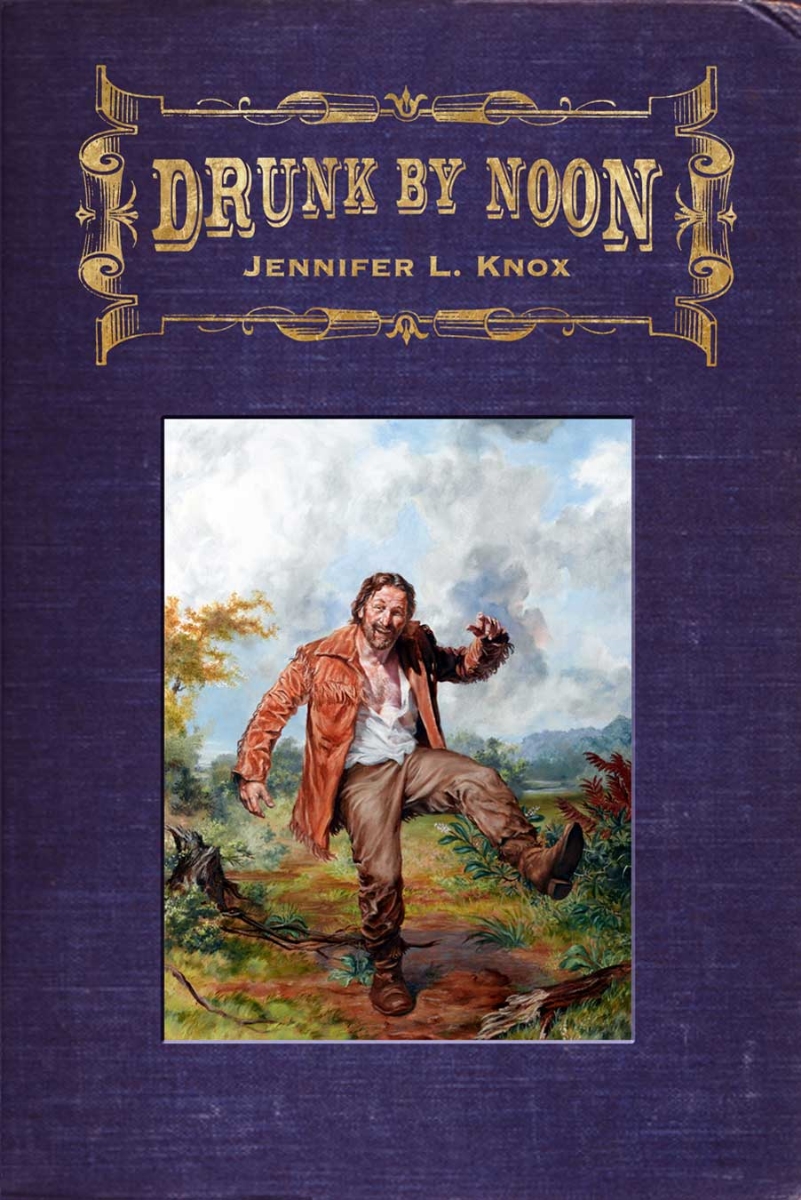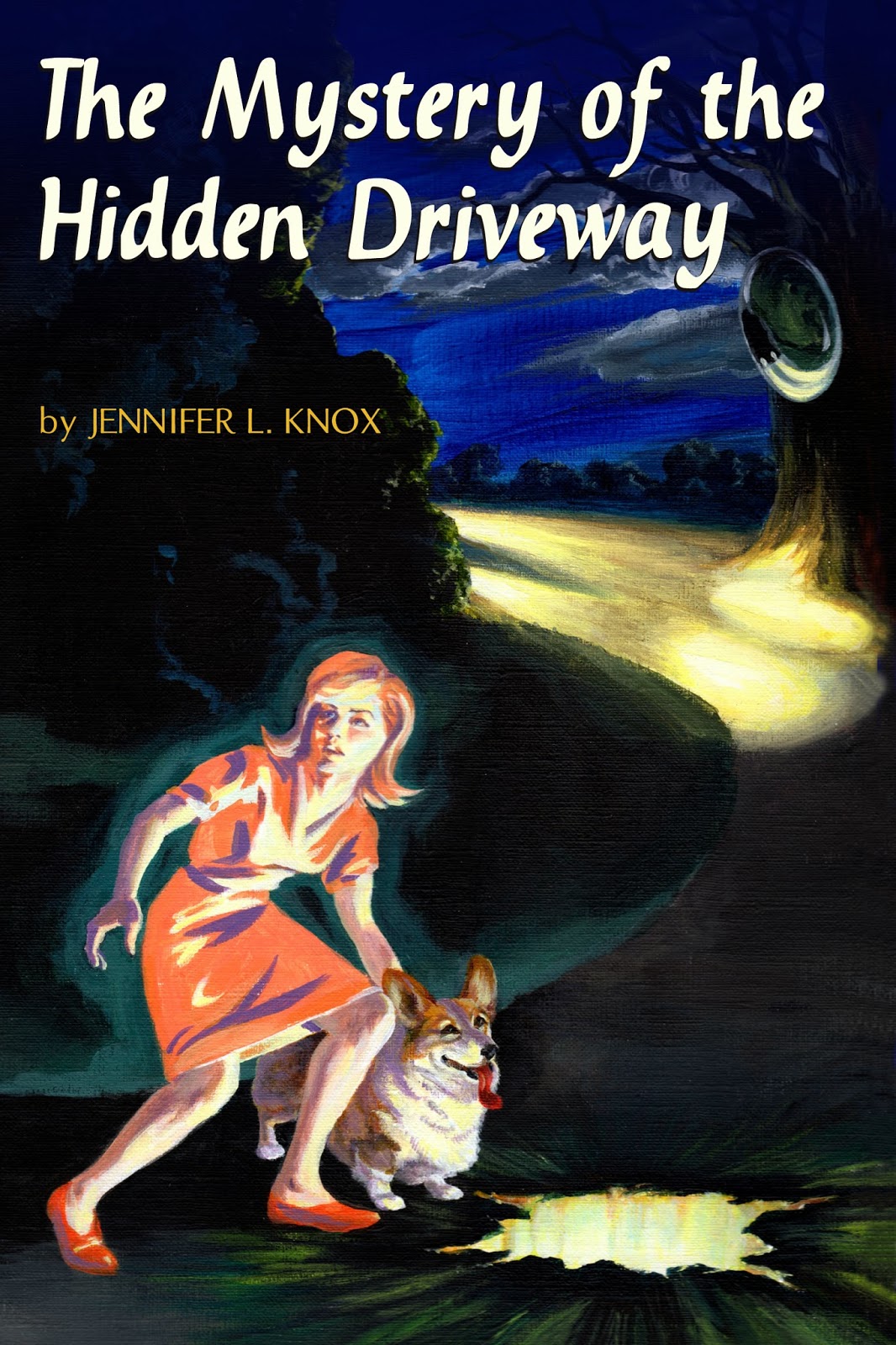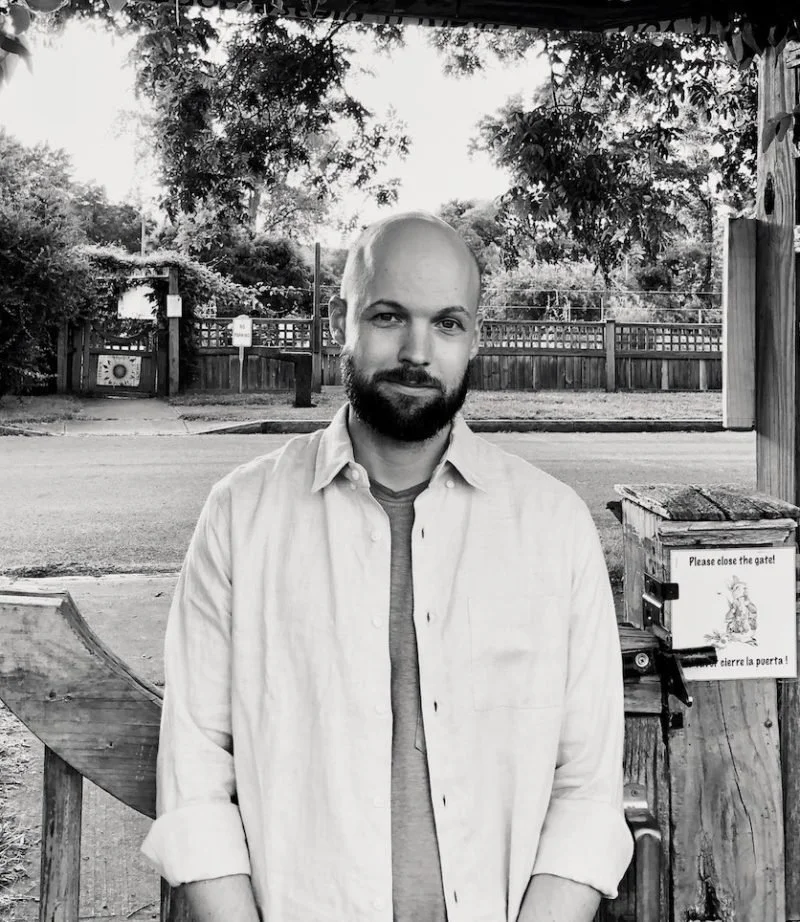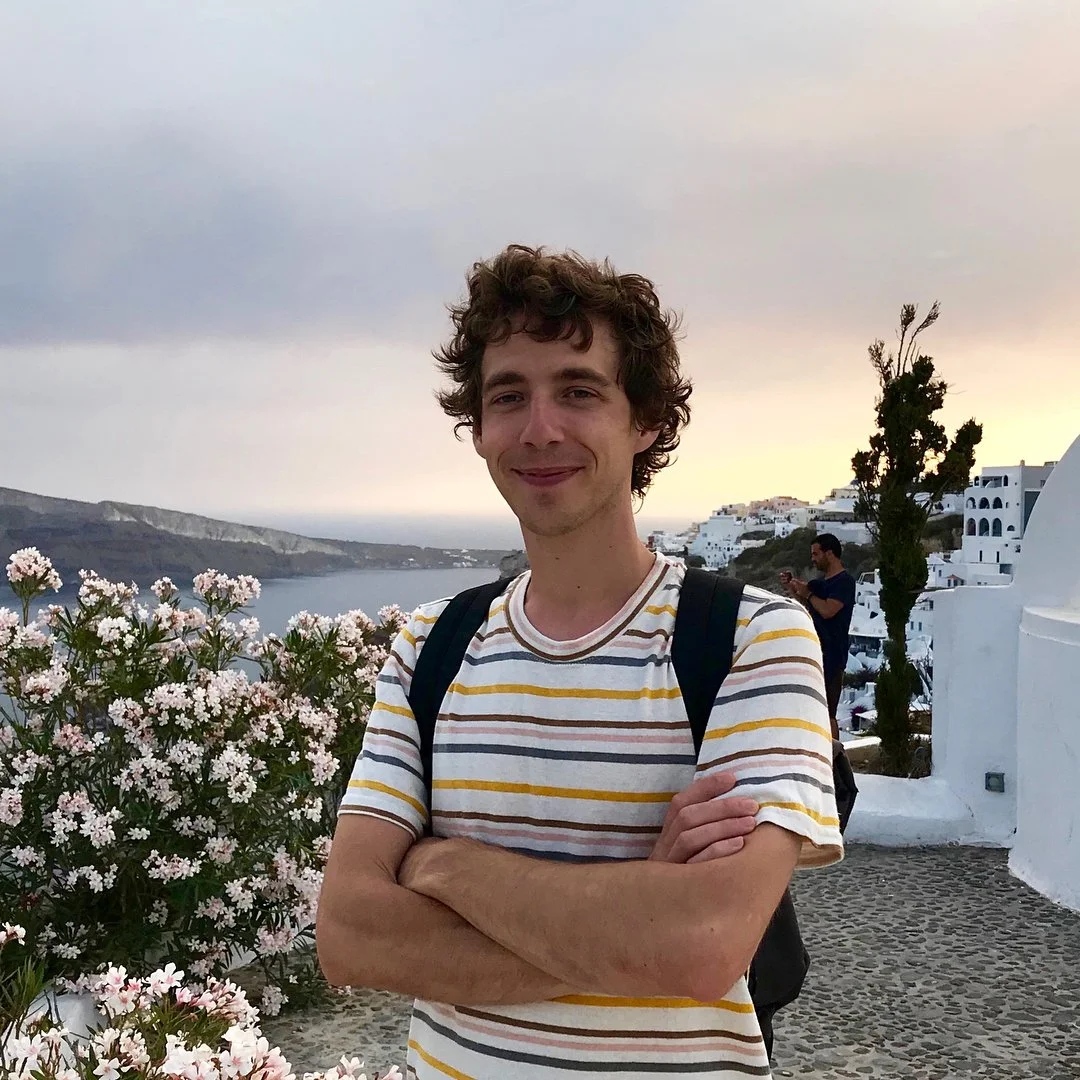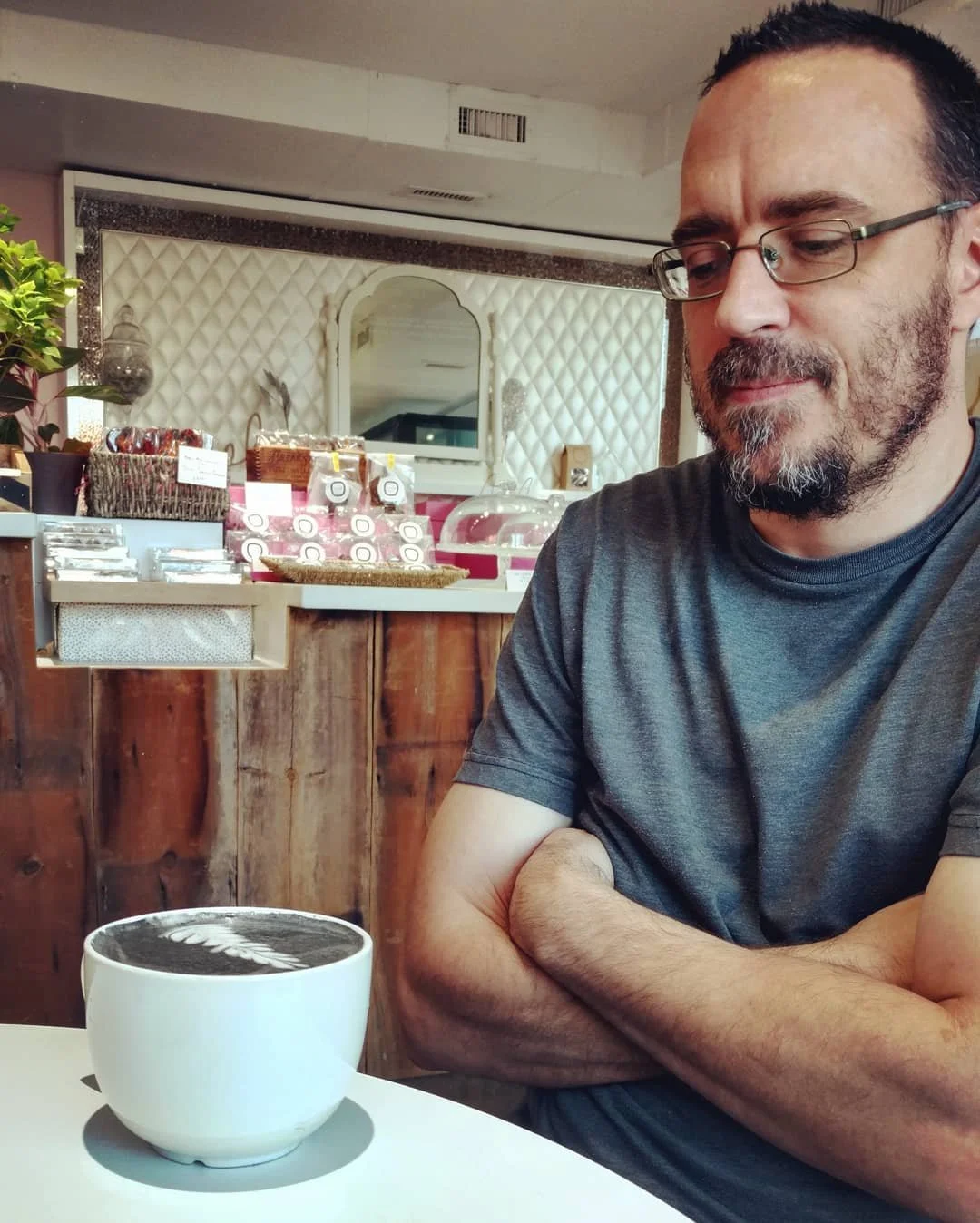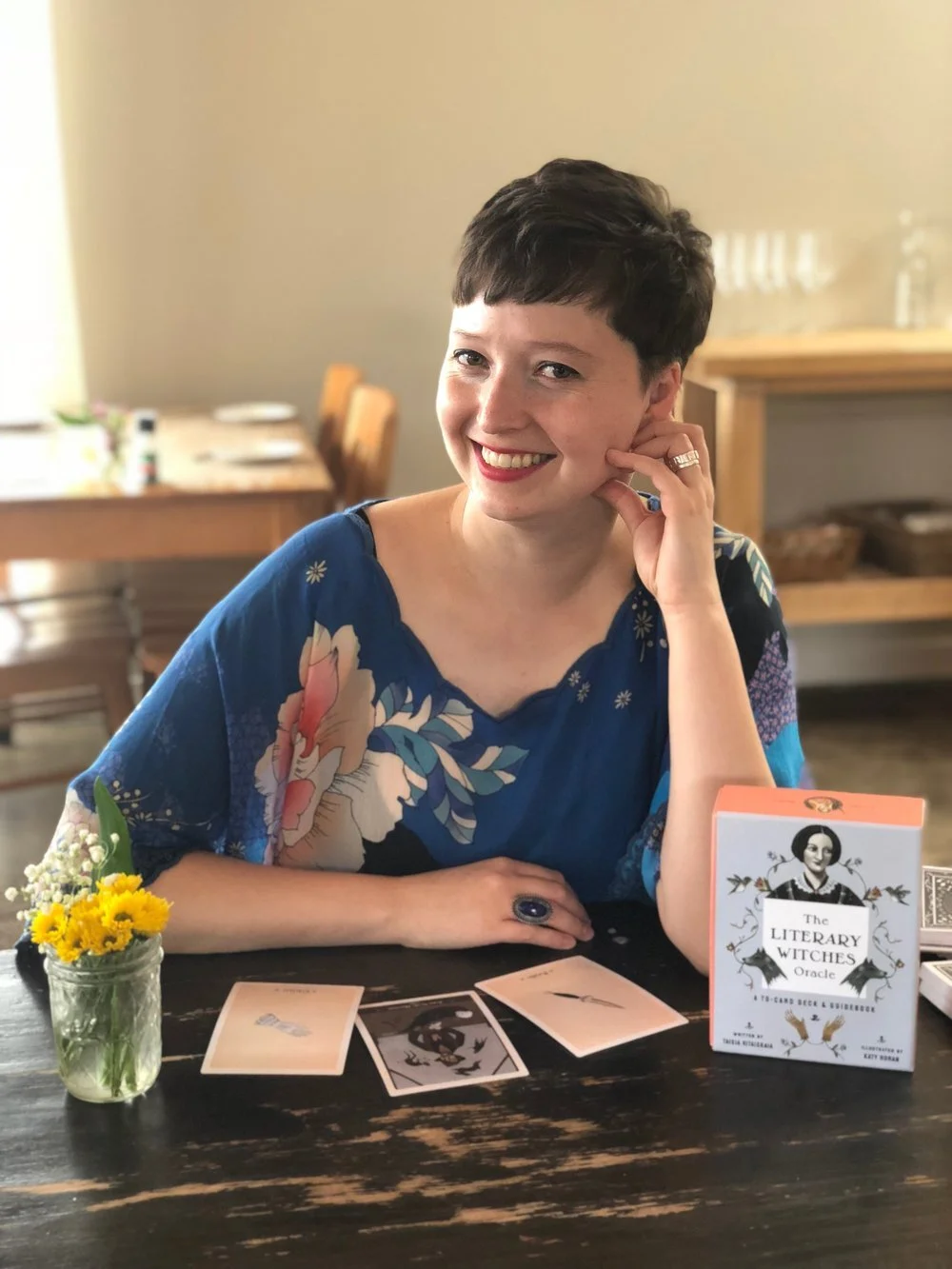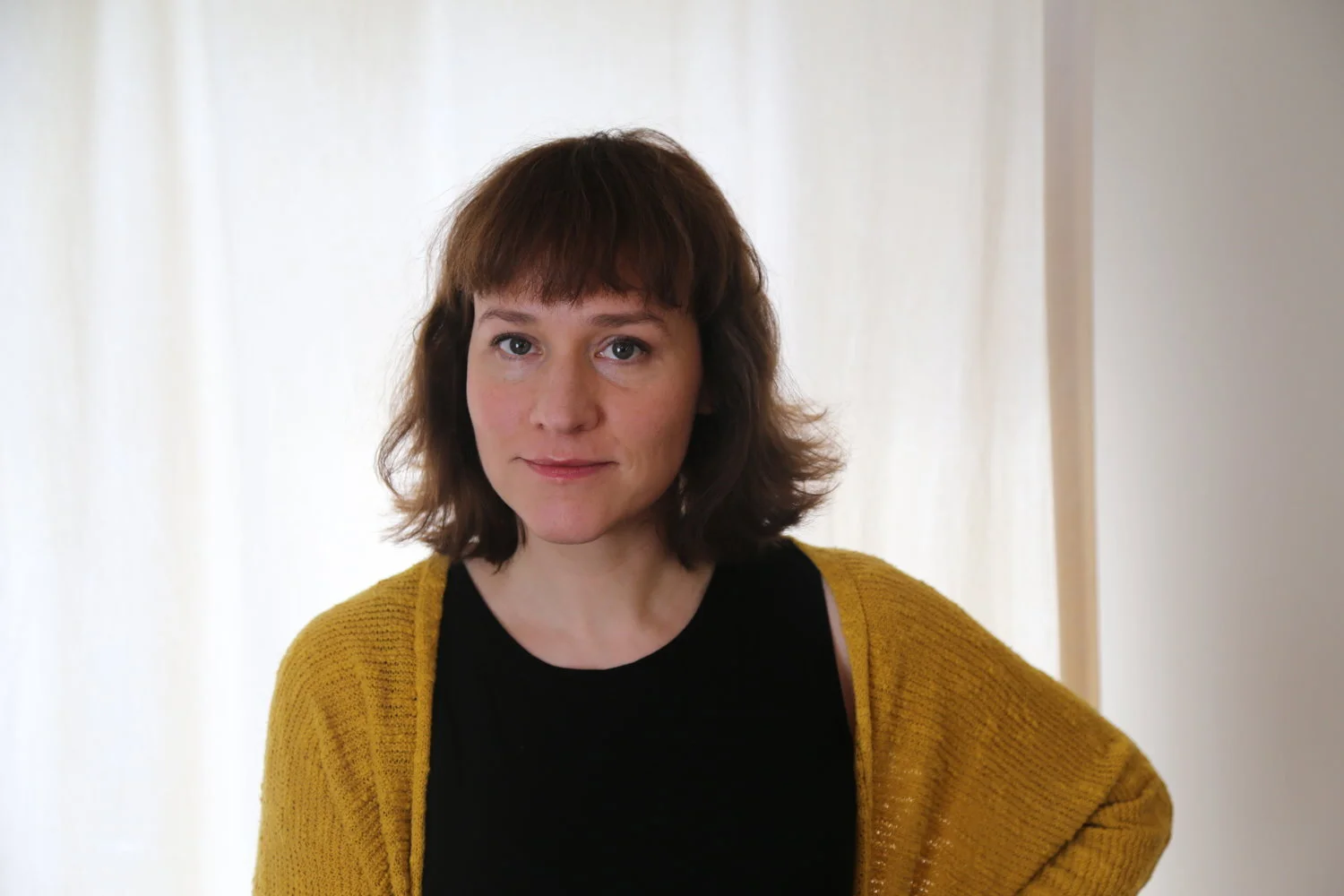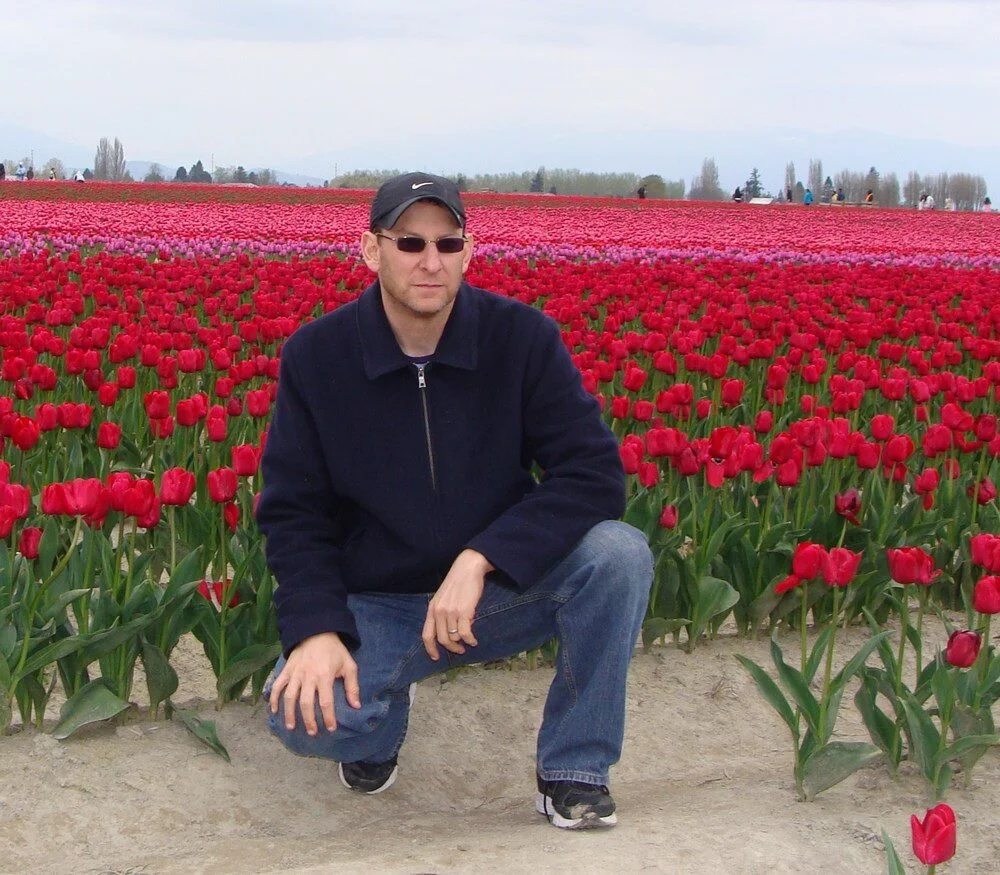Jennifer L. Knox is a trapeze poet toeing the line between absurdism and realism with buckets of humor. She unwinds with wild words. Her four books of poetry are full of debauchery enthusiasts, loosened flannel, and half-gulped bottles of liquid relax. Her poems feature substance abuse, hot ass, car crashes, post-apocalyptic drones, toxic waste babies, and one crucial 'Chicken Bucket.' Along with a plethora of cohesive and entertaining (you'll laugh, you'll cry) poetry, the moving and hilarious wordsmith (who has a parakeet named Uzi) also owns and operates a spice company. With a culinary memoir and a collection of poetry picketed into the lawn on down the road, I spoke with the Iowa-based creative about her daily schedule, the importance she places on revision, and, yes, her horse allergy.
[note: all book covers painted by artist Charles Browning and released via Bloof Books.]
Drunk by Noon (2007)
To get the ball rolling, how has the year been treating you so far? What's a day in the life like for Jennifer L. Knox?
2018...you know...everyday is some new pit of horror into which we descend...but personally I’m good. My days is either teacher, writing, or making spices for my company, Saltlickers. Some days it’s all three.
Do you practice automatic writing followed by significant edits, or do you tend to hone in on every line from the jump?
The first one. I’m 50. It’s a very rare occurrence for me to lay a perfect egg.
Your pieces are often full of debauched scenarios and off-the-wall characters. Do you chug coffee with whiskey and cigarettes to get in the zone or is your sober brain already full of these electrified wildcats?
My sober brain’s loaded. It’s the real life stuff I have to work at and push towards, past the aisle of shame and feelings of inadequacy.
Can you speak on your upcoming culinary memoir? Is this your first time really diving into a non-fiction/autobiographical realm?
It’s not my first time—I’ve written lots of essays—but this is the longest piece. It’s been so much fun to write.
Can you speak on your upcoming book of poetry? I read in past interviews that you have a novel in the works as well?
The new book of poems is, I think, going to be called Superusers. I want it to be very different. I just got an idea this morning to divide it up into 3-5 sections, based on different types of either carnival rides, types of mushrooms, or DSM categories. I don’t know which one yet, if any of them. Every poem I write is a new animal. In this book, I want to group by similarities in technique or structure. In the past, I organized the books via an overarching emotional thread: alienation > rage > unity. Some thread like that will have to be present in these little sections, of course.
I worked for years on a book of fiction (what I like to call The Long Lie) and it was bad. Nonetheless, every day, I put in hours on it, like I was trying to resuscitate a dead tree. The story is amazing, though, and true, so it might make a great nonfiction book someday.
Are you still living with birds and frequenting farmers markets?
Like a champ! I have three lovebirds (Jack, Piggle and Derpy) and one parakeet (Uzi) who really seems to be coming into her own these days. Saltlickers is about to start up its fourth season as a vendor at the three coolest farmers markets in central Iowa: Des Moines, Ames and Ankeny.
Since you began writing poetry at 19, what's the longest you've gone without writing? Is this a daily discipline or does it come in waves?
It’s a daily discipline, but I don’t always have the time or attention. For instance, if I have to teach in the afternoon, I don’t have time to get into that vulnerable headspace of writing. That day’s cached. If I’m not teaching: early a.m. (like 5, before the birds wake up because the dawn don’t greet itself) is poetry writing time. Afternoon is non-fiction writing time, and this surprised me. It’s almost like I have to talk to people first before I talk as myself, which is non-fiction. Late afternoon is action time = Saltlickers, take a run, grade papers, etc. It’s doing time, and once I start doing, I can’t go back to thinking.
via Pinwheel Journal
I read in an interview that you're allergic to horses. Is that a common allergy? Are you allergic to any other creatures?
I sure am. Terribly. The first and last memory I have of touching a horse was at my friend, Eden’s, third-grade birthday party. I was wearing shorts. Someone hoisted me onto an unsaddled horse’s back, I looked around and thought, “Cool!” The next thing I knew, EMTs were lowering me into a bathtub full of ice cubes. I’d gone into anaphylactic shock, passed out, and slid off the horse.
I’m allergic to anything with fur: dogs, cats, zebras, giraffes, tigers, goats…But my husband and I have a dog, so I get shots, and so does he because he’s allergic to...wait for it...birds! It’s like “The Gift of the Magi of Allergies”!
I don’t know how common it is, but my dad was allergic to everything with fur, too. My allergist told me she knew an actor who was very allergic to horses and was hired in a Western. He needed some seriously intense shots before he started filming.
How to do you approach a blank page? How do you decide between a prose poem and a lined poem?
The voice tells me as it unspools the content. “I don’t need line breaks on this one, Jen. Just let me talk.”
In your book, The Mystery of the Hidden Driveway, you have a series of prose poems called Cars. I loved the pace and vehicular mayhem of this segment. Is this section entirely autobiographical?
100%. I love that people think I could make that up.
Have you had any recent dreams/nightmares worth sharing?
I dream horrible stuff. People lining up around my desk to show me all the proofreading mistakes I made in a letter. One time I dreamt I was moving, so there were all these packed boxes around me, and I heard something down low, near the floorboards, like when the needle gets to the end of the record: shht-shht-shht-shht-shht...I’m looking for where the noise is coming from. Finally I see the Pillsbury Doughboy in a corner, trying to tunnel out, like a turtle in a cage. “Hey, little fella!” I say and pick him up, but when I turn him around, I see he’s got no mouth and his eyes are black and sunken in like dead belly buttons. “What’s your name?” I ask him while he’s trying to wiggle out of my hands.
via Portside
For this ongoing author interview series, I'm asking for everyone to present a writing prompt. It can be one that you craft out of thin air, it can be one you created a while ago, or it can be one you adore from an outside source that was passed down to you.
CONTRADICTIONS
This works great with three or more people. We do it in big groups of 6 or 8 or even 24. You can also do it by yourself, but skip all the folding then, and try to forget what you’ve written.
Poet 1: Ask a one-line question you don’t know the answer to. Pass the paper.
Poet 2: Answer the question, but the answer does not have to be right. Fold the paper so that Poet 3 cannot see the question, just your answer. Pass the paper.
Poet 3: Contradict the line in front of you. Your contradiction does not have to be right. Fold the paper so that the Next Poet can only see your answer. Pass the paper.
Next Poet [this is the hard part]: Turn the line in front of you into a Jeopardy-style answer, phrased as a question.
Example: if the line you receive is “He has no eyes”, a Jeopardy-style answer, phrased as a question could be: “What was weird about the Pillsbury Doughboy in Jen’s dream?” Fold the paper so that the next poet can see only your question. Pass the paper.
Next Poet: Answer the question, but the answer does not have to be right. Fold the paper so that Poet 3 cannot see the question, just your answer. Pass the paper.
Next Poet: Contradict the line in front of you. Your contradiction does not have to be right. Fold the paper so that the Next Poet can only see your answer. Pass the paper etc. About two or three rounds will conjure the wildest, weirdest poems you’ve ever seen.
Do you have any advice for artists/poets/authors working on their craft?
I’ve just discovered that my best opportunity to connect with the reader is via the revision process. The act of writing contains a great deal of talking to myself, but the act of revising is all about the reader.
Do you have any final thoughts / words of wisdom / shout-outs? Thank you!
Thanks for thinking of me, Ben! Viva Neon Pajamas!

